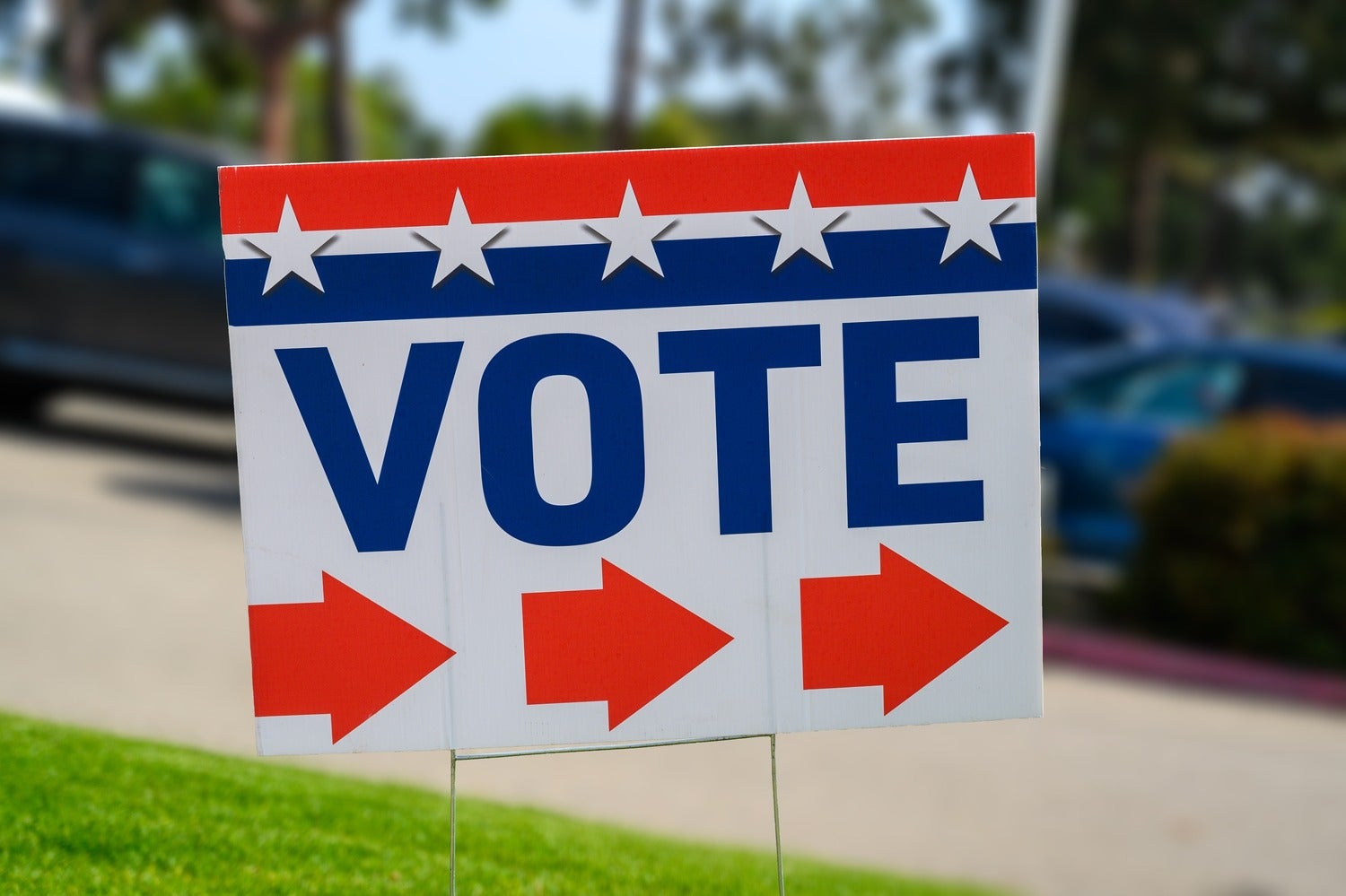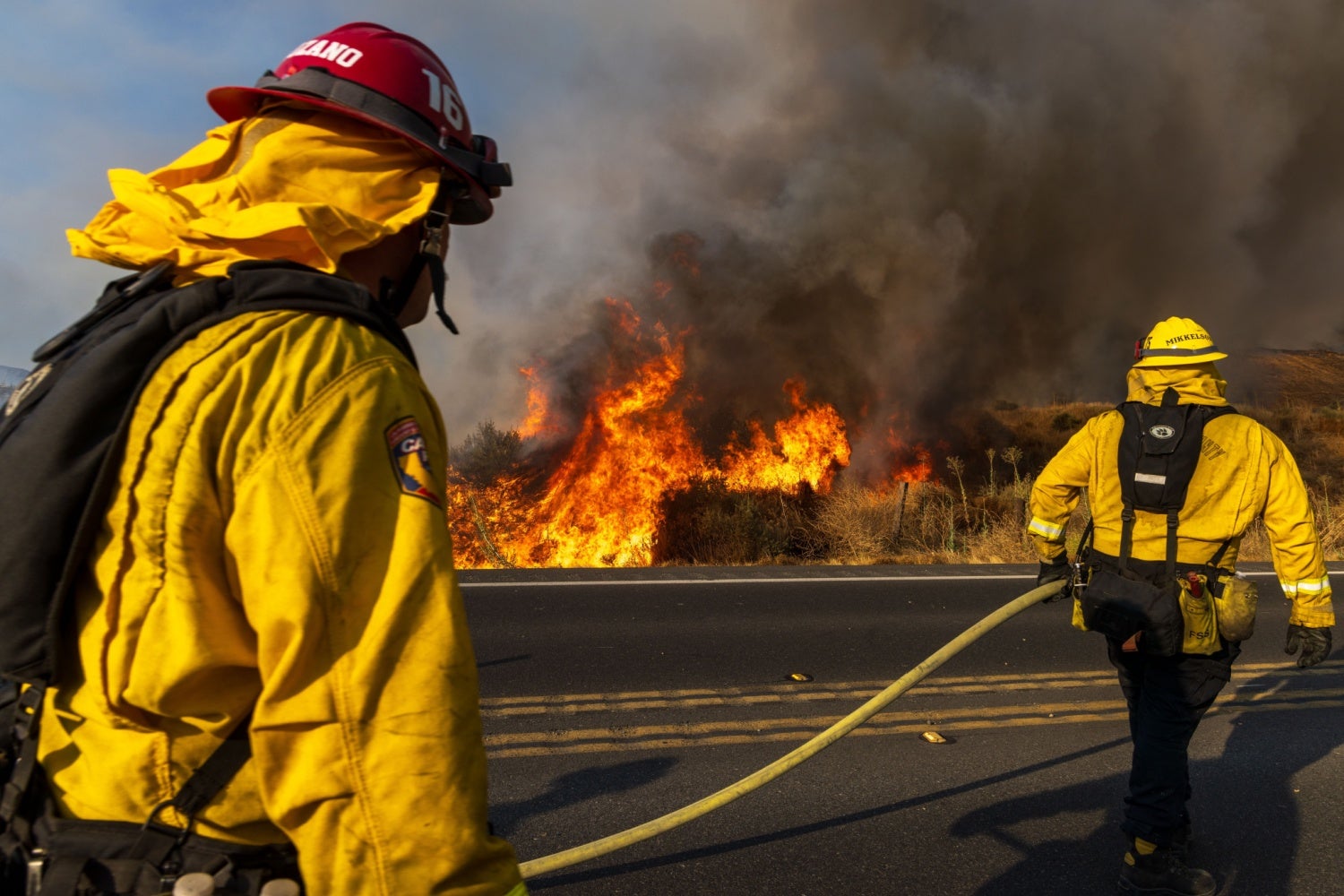Hey team, and welcome back to one5c! Whenever someone on our team asks a source what action everyday people can take to address a particular climate challenge, one of their recommendations is universal—no matter the topic at hand. Vote! The more of us who get engaged in the civic process, from the community board all the way up to the presidential election, the louder the collective voice calling for action becomes. In fact, some analyses have found that addressing human-caused climate could be a deciding factor in the 2024 election.
So, between today (Aug. 5) and election day (Nov. 5), we’ll be surfacing opportunities from nonpartisan environmental orgs that rally support for issues and candidates who’ll be on the right side of climate history. Let’s go. —Corinne
SPONSOR

Restore the Planet, One Mission at a Time
The responsibility to protect our planet falls on all of us. Planet Wild is a community of nature lovers pooling their contributions to fund efficient projects that save animals, oceans, and forests. And you can join them. Each month, your contribution will help fund a targeted nature revitalization mission where it’s needed most. With monthly videos, you’ll even get to see the impact you’re making.
The first 150 people to sign up via the link (coupon code automatically applied) will receive the first month for free as a special offer from us.
WHAT WE’RE INTO THIS WEEK
By Sara Kiley Watson

Action alert
Help get climate voters to the polls
An estimated 8 million environmentally minded voters didn’t vote in the 2020 presidential election, and 13 million didn’t cast ballots in the 2022 midterms. The Environmental Voter Project is a nonprofit, nonpartisan organization that works to identify nonvoting environmentalists across the country and get them to the ballot box. By their estimate, their campaigns—which include canvassing, mailers, and phone banking—have spurred 1.8 million nonvoters to regularly participate in the electoral process from the local on up to the federal level. Many of their volunteer opportunities require little or no experience. If you’ve never done anything like this before, working the phones is a great place to start.
Cause for optimism
Electric trucks power homes for the first time
One of the lesser-discussed benefits of electric vehicles is their ability to act as batteries. Ford’s F-150 Lightning is one of a handful of EVs that have a mode in place that lets them use their onboard juice to power a home (known as “vehicle-to-home”) or send energy to the grid (“vehicle-to-grid”). Baltimore Gas and Electric just made it so that truck owners can get paid for pluggin’ into their homes, a first, reports Canary Media. Right now, there are only three participants, but if these kinds of efforts are scaled beyond Baltimore and the F-150, it could help take the pressure off of the grid at times when energy demand is at its peak. California even introduced a bill last year that would require all EVs to be able to charge and send energy back to the grid by 2027.
What’s that?
Earth Overshoot Day, explained
As of Aug. 1, the world had plowed through its annual budget of natural resources, outpacing Earth’s ability to regenerate what we’ve used up. This ecological concept is known as “overshoot.” If you’ve ever gone to the market on Sunday, bought groceries meant to last the entire week, and then needed to go back again on Wednesday because you’ve already snacked through it all, you get the idea. Earth Overshoot Day, calculated by the Global Footprint Network, has held steady at about 7 months into the calendar year for about a decade, but the very first one, in 1971, fell on Christmas Day. It is possible, however, to get back on schedule: The Global Footprint Network estimates that shrinking current emissions from fossil fuels by 50% could slide overshoot back to November.
Accountability check
Accounting standards for climate impacts
Considering uncertainties has always been part of the game when companies report their finances to investors—and human-caused climate change has made it even more complicated. Given the impact of net-zero initiatives and climate impacts like floods can have on firms’ bottom lines, the International Accounting Standards Board, a body whose recommendations set accounting norms in 140 countries, released a proposal for how companies should bake those uncertainties into their financial documents. Though the U.S. uses a different set of accounting rules, the Securities and Exchange Commission called for similar reporting standards in March.
MIC-DROP CLIMATE STAT
24%
The portion of major fashion brands that have no plans for decarbonization, according to a recent report from Fashion Revolution.
WEATHER REPORT
What you need to know about the new face of wildfire season
By Tyler Santora

There are currently 1,236 active wildfires in North America, making the fire map look like something out of an apocalypse movie. Altogether, they have burned 2,180,105 acres (an area a little larger than Delaware), mostly in the Western half of the U.S., causing thousands to evacuate. Nowadays, this isn’t out of the ordinary. Every summer, people in hotspots wonder whether they’ll have to leave home. Even those hundreds of miles away wonder how badly smoke might taint their air quality.
Here’s a cliff’s notes primer on what causes wildfires, how the climate crisis is fanning the flames, and what you can do to help.
The spark that lights wildfires
Wildfires can occur naturally. When they do, lightning strikes are usually the cause. But in 85% of cases, humans are the culprit—through campfires, discarded cigarettes, equipment malfunction, the burning of debris, or even arson.
Remember, though: Although wildfires can be devastating, they aren’t inherently bad for the environment; they’re actually an important part of natural ecological processes. But years of 20th-century fire policies have upset the natural order. In 1935, the Forest Service implemented a policy to suppress all fires. Now, a lack of small, periodic wildfires leaves extra fuel for larger ones. That means fires burn at higher temperatures and kill trees that would otherwise be able to survive the blaze.
How climate change stokes the flames
Human-caused climate change doubled the number of extreme wildfires worldwide, according to data published in Nature Ecology & Evolution. The blazes are also poised to gobble up more land; a 1-degree Celsius bump in future global temps could increase the median area wildfires burn by 600% in some forests. Wildfire season is also getting longer: 20 extra days a year in the Southwestern U.S., according to a 2023 study.
There are two major ways the climate crisis has led to a new era in wildfires. First, more frequent and intense droughts and heat waves dry out vegetation, which creates kindling that helps blazes start and spread. Second, climate scientists have found that the type of lightning that’s most likely to cause wildfires has increased by 41% according to a forecast published in Nature Communications.
How to help survivors
Because of all this, damages from wildfires are also increasing quickly. From 2008 to 2020, an average of more than 4,500 people lost their homes to wildfires each year. And the National Oceanic and Atmospheric Administration reports wildfires caused $81.6 billion in damage in from 2017 to 2021, a nearly 10-fold increase compared to the prior five-year period.
To donate to those affected by wildfires, you can search for reputable charities that support them via websites like Charity Navigator. Some options include Extreme Weather Survivors, After the Fire, and local nonprofits in affected areas. If you’re curious about how helpful GoFundMe might be, give it a second look; analysis has found the platform can be rife with inequity and can leave some communities by the wayside.
Of course, Smokey Bear is also right in that we all have a role to play in prevention, including following campfire bans in wildfire risk areas and properly putting out campfires. And, as with any dilemma related to climate change, we can advocate for change and vote for representatives who take on the complicated pattern of policies that can make our fire seasons worse.
